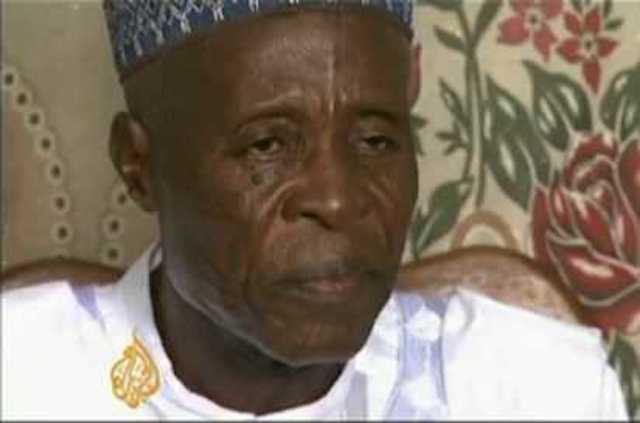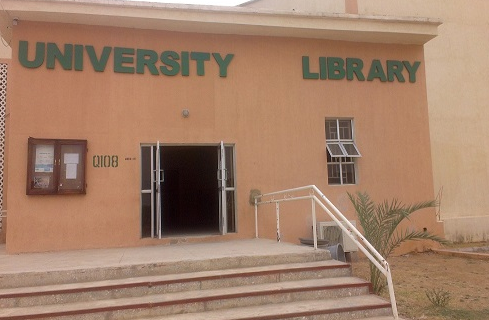Customarily, love is thought to be two hearts beating as one. What then defined the enigma of Abubakar Bello Masaba was an uncanny skill to stir and replicate such heartbeat in multiple dozens of liaison, sustaining the magic till he drew his last breath last Saturday at a time the society had otherwise come under what could be termed an epidemic of divorce.
As the remains of the nonagenarian were finally lowered into mother earth hours later in his native Bida after a clearly remarkable career in uncommon polygamy, what has unwittingly been unveiled is a record unparalleled in Nigeria’s recorded history, the surpassing of which would be herculean indeed for future challengers.
His brood consists of no fewer than 187 children.
His fabled harem of over 100 wives is located in a nondescript, colonial-style two-storied building in Bida. Literally, he owned the lock, stock and barrel.
Advertisement
In one of his rare interviews, he revealed his recruitment strategy on BBC in 2008: “I don’t go looking for them, they come to me… I’ll consider the fact that God has asked me to do it and I’ll just marry them.”
Doubtless, countless lotharios exist within Nigerian borders whose clandestine exploits over the years, when aggregated, would make Masaba’s look like a child’s play. But not many had his honesty to openly declare their interests, nor the courage to assemble their conquests into a single community with an identifiable address.
The closest anyone had come would be in faraway Saudi Arabia. A wealthy business tycoon, Saleh Al-Sayeri, is reputed to have formed the habit of keeping dozens of wives, even though he hardly remembers the names of most of them. But officially, he acknowledges four, to obey Islamic injunction which imposes a ceiling of 4.
Advertisement
Even at that, Al-Sayeri still relies on an ingenious mathematical formula of elimination by substitution. In the past two decades, he says he has kept three as constant but shuffles the fourth candidate yearly. His cheeky explanation: “It’s the one for renewal… I like to change my fourth wife every year.”
But, not Masaba.
For as long as anyone could remember, the maverick Islamic teacher and traditional healer had cultivated and nurtured a mammoth harem. At the last count, the population was estimated to be at least 100. His legend grew not so much from his stamina to sustain a seemingly boundless matrimony, but obviously, more from the equanimity and fortitude he showed in the face of tribulation and persecution suffered for his marital preference.
A vivid example was the run-in he had with the Niger sharia council in 2008, eventuating in his imprisonment for the sake of love. At different times, influential institutions like Jama’atu Nasiru-Islam (JNI), the Bida emirate council and Islamic leaders had enjoined him to either dissolve his harem then put at 86 or winnow the number to 4. Masaba bluntly refused. He opted to go to jail instead.
Advertisement
Typically, assorted apocryphal tales were soon spread by enemies to discredit him. One said he usually charmed vulnerable women seeking healing with juju before putting them in family way. So, it would then seem his teaching and healing were not just touching hearts; they touched lips as well.
But in a rare show of conjugal solidarity in shared adversity, 57 of such women later staged a parade and solemnly declared that they married him on free will and could not be happier in their marriage. They attested he was not just a good husband, but also a fantastic father.
With that, the authorities no longer had a strong excuse to keep him in custody.
On return from jail, Masaba never failed to continue exhibiting his accustomed grace under choking pressure from the immediate community, defiantly announcing instead a resolution to keep expanding his harem, only warning traducers who persisted were courting God’s wrath.
Advertisement
His words: “I’ll keep marrying them as long as I’m alive. Whoever is fighting me because of my wives or love life, such an individual has missed it. Left for me, I would have married maybe two wives, but I’ll keep marrying till the end of time. I just want to advise those fighting against the number of wives to stop because such people are waging war against God, their creator.”
Ordinarily, a household of hundred wives and over hundred children of voting age should constitute a formidable bloc – or what more Americans are learning to rever as “electoral college” – to, at least, swing electoral victory in the locality, if not bargain for political concessions at higher level. But despite his ordeal at the hands of both secular and spiritual authorities at some point, Masaba was never known to have openly flirted with any political party out of vendetta or in search of protection.
Advertisement
Since the trustees of the faith he professed seemed unwilling to reconcile with him till the end, it may entirely not be too outlandish therefore to view Masaba’s marital doctrine more as a cultural statement in the African milieu.
His preference would easily have lent itself to two disparate interpretations: either positively as an expression of the values of sharing and accommodation indigenous to Africa or negatively as the vulgar way a man could display his material abundance. In traditional society, a man’s affluence used to be measured by the size of his harem.
Advertisement
At 93, the super polygamist of Bida could not be said to have died prematurely in a country where life expectancy is a miserable 47. Regardless, the pain his passing brings is the nuggets of lessons not shared, both macro and micro, corporate and individual. Despite his extra-ordinary accomplishments and the long years he lived, he was not known to have gathered or documented his experiences to benefit researchers or the posterity for that matter.
For instance, we would never know the management principles Masaba adopted to run his extra-large household. It surely required wizardry in financial matters to sustain such multitude under a roof. Each time economic recession beckoned over the years, what fiscal policy did he resort to ensure no wife stayed hungry or kids’ school fees unpaid?
Advertisement
Had he written a book, such would definitely have been strongly recommended to political leaders of contemporary Nigeria to borrow one or two leaves not only in the husbandry of material resources, but also in the management of human diversities.
Masaba selected his women from many ethnic nationalities. He might have had a few runs-in with authorities but we never heard police regularly visited his home to settle quarrels or fights. With that, he and his clan undoubtedly provided a model in peaceful co-existence.
Today’s leaders who revel in fanning the embers of division – whether sectarian or political – would also need to learn from him the virtues of tolerance and inclusiveness.
On the other hand, even if only out of curiosity, I imagine young men of nowadays would have sought Masaba’s clarification or guidance at a time when not only the marriage institution is increasingly undermined by upsurge in divorce, men’s virility is also being redefined by an explosion of indulgence in performance-enhancing substance hawked at the street-corner.
In a veiled reference to virility, he told another interviewer: “A man with 10 wives would collapse and die, but my own power is given by Allah… That is why I have been able to control 86 of them.”
With such breath-taking outlay, some might want to further ascertain, even if only for academic purposes, whether the great Masaba still had any appetite left to look outside.
If Masaba then relied solely on God’s power to service his harem, many would have wanted to find out whether he kept a roster. If there was, was it cast in stone or subject to revision periodically? In the first place, was it imposed by fiat or benefitted from vigorous debate by every member of the harem before being ratified in the fine tradition of democracy?
And most symbolic of all, the old soldier of intimacy chose to take a bow on the eve of February, the acclaimed season of love, whether agape or carnal.
Who killed Ben Onyechere?
Nigeria’s list of brutal murders lengthened last weekend with the killing of Ben Onyechere, a political communication specialist, in Owerri, Imo state by some still unidentified marksmen.
His last engagement was in Abia State as special adviser on communication to the immediate past governor, Theodore Orji.
He was reportedly trailed from a supermarket where he had shopped before being double-crossed, his driver shot in the legs and he bundled away. A search party who scoured the city overnight eventually found his body Monday morning not faraway from where he was abducted.
I have fond memories of Ben. Though we last spoke a long time ago, we had spent virtually four or five days together in 2006 in Boston, United States attending the world Igbo congress (WIC). My then colleague at The Sun, Dr. Amanze Obi, and I took a big suite at the Marriot Hotel. Ben joined us.
Together, we dined, wined, played, joked and went on sight-seeing throughout our stay in Boston.
An inexhaustible bag of native humour, Ben continually regaled us with funny anecdotes gleaned over the years from his intimate encounters and associations with generations of Igbo political and business leaders. One of whom is former vice president, Alex Ekwueme.
Back home then, OBJ’s fevered bid for third term had just been killed and buried at the national assembly. So, that formed the staple of side-talk at the usually boisterous WIC.
Predictably, Ben saw in that an opportunity for Ndigbo to close ranks and push for a president of Igbo extraction in then pending 2007 general elections. Having witnessed first-hand the Biafran quest brutally cut down in the 60s as a youngster, he was always anxious – in fact emotional – about the place of Igbo man in the Nigerian enterprise.
It is difficult to accept that such a good-natured, decent and articulate guy would end so gruesomely. His blood is crying for justice.







